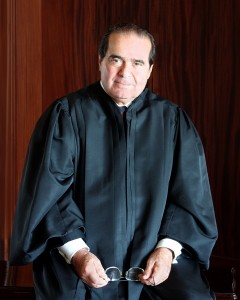America lost a patriot and unswerving advocate for constitutional government. There is no need for me to recap the basics of Supreme Court Justice Antonin Scalia’s amazing career. Instead, I’d like to focus on a few specific facets of his character.
First and foremost, I am amazed at how Scalia truly built a bespoke life from the ground up. Born in the 1930s in New Jersey to a father who came through Ellis Island and raised in working-class Queens, he made conscious decisions early on to take his Catholic faith and his studies extremely seriously. He finished first in his class in both high school and college and forged a path to Harvard Law School, where he met his wife Maureen. Together, they built a family with 9 children and almost 30 grandchildren.
Second, Justice Scalia combined principled conservatism with great creativity and curiosity. His obvious brilliance defied 20th-century stereotypes that conservatism was only for the uneducated or uncultured. In his day job, Scalia fused technical legal questions with abstract, philosophical inquiries into interpretation and representative government. Outside of work, he read widely and cultivated interests that cut across typical lines. We could use more Americans who are equally avid fans of hunting and classic opera.
Third, the late justice embodied the fierce but friendly competition of ideas. His approach to intellectual competition embodied exactly the spirit we wish to pursue: A forceful debater and critic of his colleagues’ logical soft spots, Scalia was nevertheless unfailingly good-natured and beloved by some of his biggest foes.
Justice Ruth Bader Ginsburg and Scalia were, as she put it in her own recent remembrance, “best buddies.” They traveled together and habitually celebrated New Year’s Eves together with their spouses. Their well-known cross-ideological friendship actually inspired an opera to be written about the two of them.
Scalia’s civility in ideological engagement was a model for what America needs today to beat back the ghastly malice and polarization we see around us.






